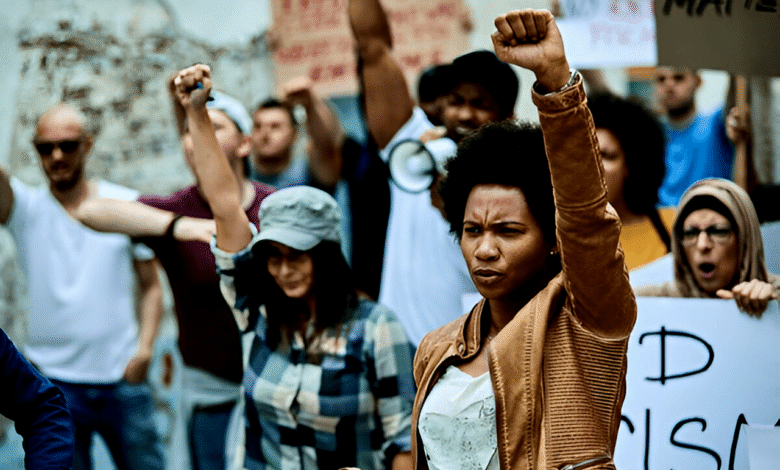Your Civil Rights in Georgia What to Do If They’re Violated
Civil rights in Georgia protect against discrimination Learn what to do if your rights are violated and how to seek justice effectively.

Civil rights in Georgia are fundamental protections guaranteed by both federal and state laws, ensuring that every individual is treated equally under the law. These rights cover essential aspects of life, including employment, housing, education, and interactions with law enforcement. Despite these legal safeguards, violations still occur whether through discrimination, police misconduct, or systemic injustice. If you believe your civil rights in Georgia have been violated, it’s crucial to understand your legal options and take action to hold violators accountable. This guide will help you recognize violations, document incidents, and pursue justice through the proper channels.
When civil rights in Georgia are violated, the consequences can be devastating, affecting a person’s livelihood, safety, and dignity. Many victims hesitate to speak up due to fear of retaliation or uncertainty about the legal process. However, knowing how to respond whether by filing a complaint, seeking legal counsel, or pursuing a lawsuit can empower you to defend your rights effectively. By taking the right steps, you not only protect yourself but also contribute to broader efforts to uphold justice and equality across the state. Education Discrimination Schools receiving federal funding must comply with Title VI (race), Title IX (gender), and the Individuals with Disabilities Education Act (IDEA).
Your Civil Rights in Georgia What to Do If They’re Violated
Federal Civil Rights Protections in Georgia
Georgia adheres to key federal laws that safeguard fundamental rights for all individuals. The Civil Rights Act of 1964 prohibits discrimination based on race, color, religion, sex, or national origin in employment, education, and public accommodations. The Americans with Disabilities Act (ADA) ensures equal opportunities for people with disabilities in workplaces, schools, and public spaces. Additionally, the Fair Housing Act bans housing discrimination based on race, religion, gender, disability, or familial status. These federal laws provide a baseline of protection, allowing victims to file complaints with agencies like the EEOC (Equal Employment Opportunity Commission) or HUD (Department of Housing and Urban Development) if their rights are violated.
Georgia-Specific Civil Rights Laws
Beyond federal protections, Georgia has state laws that further defend against discrimination. The Georgia Fair Employment Practices Act prohibits workplace discrimination based on race, color, religion, sex, national origin, disability, or age (for employers with 15+ employees). In education, Georgia follows federal Title IX guidelines to prevent gender-based discrimination in schools. The state also enforces protections against police misconduct through oversight agencies like the Georgia Bureau of Investigation (GBI). While Georgia lacks a comprehensive statewide civil rights law covering all forms of discrimination (such as LGBTQ+ protections in private employment), some cities, like Atlanta.
Common Civil Rights Violations in Georgia
Common Forms of Civil Rights Violations in Georgia
Civil rights violations in Georgia manifest in various areas of daily life, each with distinct legal protections Employment Discrimination Illegal under both federal law and Georgia law, this includes bias in hiring, promotions, pay, or workplace harassment based on race, gender, religion, age (over 40), disability, or national origin. Police Misconduct Excessive force, false arrests, or racial profiling violate the Fourth Amendment and Fourteenth Amendment. Housing Discrimination The Fair Housing Act and Georgia law prohibit refusing housing, imposing unequal terms, or misleading applicants due to race, disability, familial status, or other protected traits.
Overcoming Barriers to Reporting and Seeking Justice
Many victims hesitate to report violations due to fear or confusion, but Georgia offers robust recourse Legal Safeguards Against Retaliation: Federal and state laws (e.g., Georgia Whistleblower Act) prohibit retaliation for reporting discrimination or misconduct. Employers or agencies cannot fire, demote, or harass complainants. Free and Low-Cost Legal Resources: Organizations like Georgia Legal Services Program, ACLU of Georgia, and the Southern Center for Human Rights provide pro bono aid for civil rights cases, including help filing complaints or lawsuits. Multiple Reporting Channels: Depending on the violation, victims can submit complaints to The EEOC (employment) within 180 days.
Steps to Take If Your Civil Rights Are Violated
Document the Incident
Detailed records strengthen your case. Note dates, times, locations, involved parties, and any witnesses. Save emails, photos, videos, or official documents related to the incident.
Report to the Appropriate Authority
Depending on the violation, different agencies handle complaints Employment Discrimination Equal Employment Opportunity Commission (EEOC) or Georgia Commission on Equal Opportunity (GCEO). Police Brutality File a complaint with the police department’s internal affairs division or the Georgia Bureau of Investigation (GBI). Housing Discrimination U.S. Department of Housing and Urban Development (HUD) or Georgia Fair Housing Commission.
Seek Legal Assistance
Consulting a civil rights attorney ensures your case is properly evaluated. Lawyers can help file lawsuits, negotiate settlements, or represent you in court. Organizations like the ACLU of Georgia or the Southern Center for Human Rights provide legal support for civil rights cases.
File a Lawsuit If Necessary
If mediation or complaints do not resolve the issue, a lawsuit may be the next step. Federal and state courts handle civil rights cases, with potential remedies including monetary compensation, policy changes, or reinstatement in employment cases.
Advocate for Systemic Change
Beyond individual cases, advocating for policy reforms helps prevent future violations. Supporting organizations that fight for civil rights or engaging with legislators can lead to long-term improvements in justice and equality.
Read More: 5 Things to Know Before Suing for Medical Negligence in Pennsylvania
Conclusion
Civil rights in Georgia form the foundation of justice and equality, ensuring every individual is treated with dignity under the law. If you believe your rights have been violated, taking immediate action whether through documentation, formal complaints, or legal recourse is essential to holding violators accountable. Remember, you are not powerless; state and federal laws exist to protect you, and numerous organizations are ready to support your pursuit of justice. By standing up for your rights, you not only defend yourself but also help strengthen these protections for others in your community.
Violations of civil rights in Georgia can have lasting impacts, but persistence and knowledge of the legal system can lead to meaningful resolutions. Whether through mediation, lawsuits, or advocacy for policy changes, every step forward contributes to a fairer society. If you face discrimination, police misconduct, or other injustices, do not hesitate to seek help from legal professionals or civil rights organizations. Your voice matters, and by taking action, you play a vital role in upholding the principles of equality and justice for all Georgians.
FAQs
What qualifies as a civil rights violation in Georgia?
A civil rights violation occurs when someone is discriminated against or treated unfairly based on race, gender, religion, disability, or other protected characteristics under federal or state law.
How long do I have to file a civil rights complaint in Georgia?
Deadlines vary; for employment discrimination, you typically have 180 days to file with the EEOC, while other violations may have different statutes of limitations.
Can I sue for a civil rights violation in Georgia?
Yes, if mediation fails, you can file a lawsuit in federal or state court with the help of a civil rights attorney.
What compensation can I receive for a civil rights violation?
Compensation may include monetary damages, job reinstatement, policy changes, or punitive damages in cases of severe misconduct.
Where can I get free legal help for a civil rights case in Georgia?
Organizations like the ACLU of Georgia, Georgia Legal Services Program, and the Southern Center for Human Rights offer free or low-cost legal assistance.











